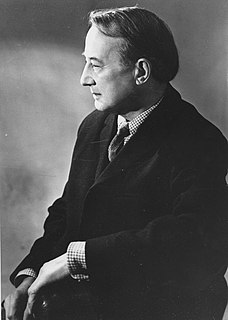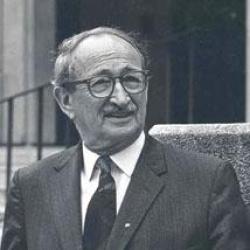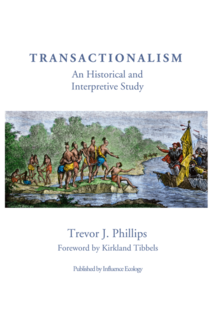Related Research Articles
Progressive education is a pedagogical movement that began in the late nineteenth century and has persisted in various forms to the present. The term progressive was engaged to distinguish this education from the traditional curricula of the 19th century, which was rooted in classical preparation for the university and strongly differentiated by social class. By contrast, progressive education finds its roots in modern experience. Most progressive education programs have these qualities in common:

John Dewey was an American philosopher, psychologist, and educational reformer whose ideas have been influential in education and social reform. He was one of the most prominent American scholars in the first half of the twentieth century.
The philosophy of education examines the goals, forms, methods, and meaning of education. The term is used to describe both fundamental philosophical analysis of these themes and the description or analysis of particular pedagogical approaches. Considerations of how the profession relates to broader philosophical or sociocultural contexts may be included. The philosophy of education thus overlaps with the field of education and applied philosophy.

Pragmatism is a practical approach to living. Pragmatists prefer problem solving and action, and reject ideas that misrepresent, distort, or mirror reality. Pragmatists contend that most philosophical topics—such as the nature of knowledge, language, concepts, meaning, belief, and science—are all best phrased with verisimilitude, or as true to life as possible.

Richard McKay Rorty was an American philosopher.

Johann Georg Hamann was a German Lutheran philosopher from Königsberg known as “the Wizard of the North” who was one of the leader figures of post-Kantian philosophy. His work was used by his student J. G. Herder as the main support of the Sturm und Drang movement, and is associated with the Counter-Enlightenment and Romanticism.

Charles Margrave Taylor is a Canadian philosopher from Montreal, Quebec, and professor emeritus at McGill University best known for his contributions to political philosophy, the philosophy of social science, the history of philosophy, and intellectual history. His work has earned him the Kyoto Prize, the Templeton Prize, the Berggruen Prize for Philosophy, and the John W. Kluge Prize.

Michael Joseph Oakeshott FBA was an English philosopher and political theorist who wrote about philosophy of history, philosophy of religion, aesthetics, philosophy of education, and philosophy of law.

Sidney Hook was an American philosopher of the pragmatist school known for his contributions to the philosophy of history, the philosophy of education, political theory, and ethics. After embracing communism in his youth, Hook was later known for his criticisms of totalitarianism, both fascism and Marxism–Leninism. A pragmatic social democrat, Hook sometimes cooperated with conservatives, particularly in opposing Marxism–Leninism. After World War II, he argued that members of such groups as the Communist Party USA and Leninists like democratic centralists could ethically be barred from holding the offices of public trust because they called for the violent overthrow of democratic governments.

Philip Stuart Kitcher is a British philosophy professor teaching at Columbia University who specialises in the philosophy of science, the philosophy of biology, the philosophy of mathematics, the philosophy of literature, and more recently pragmatism.

Democratic education is an educational ideal in which democracy is both a goal and a method of instruction. It brings democratic values to education and can include self-determination within a community of equals, as well as such values as justice, respect and trust.
Richard McKeon was an American philosopher and longtime professor at the University of Chicago. His ideas formed the basis for the UN's Universal Declaration of Human Rights.
Randall E. Auxier is a professor of philosophy and communication studies at Southern Illinois University Carbondale, a musician, environmental activist, union advocate, and candidate (2018) for the United States House of Representatives, nominated by the Green Party in the 12th Congressional District of Illinois. He is a radio host for WDBX Carbondale since 2001, a widely read author of popular philosophy, and also a co-founder and co-director of the AIPCT.
Eduard C. Lindeman was an American educator, notable for his pioneering contributions in adult education. He introduced many concepts of modern adult education in his book, The Meaning of Adult Education.

The Public and its Problems is a 1927 book by American philosopher John Dewey. In his first major work on political philosophy, Dewey explores the viability and creation of a genuinely democratic society in the face of the major technological and social changes of the 20th century, and seeks to better define what both the 'public' and the 'state' constitute, how they are created, and their major weaknesses in understanding and propagating their own interests and the public good. Dewey rejects a then-popular notion of political technocracy as an alternative system of governing an increasingly complex society, but rather sees democracy as the most viable and sustainable means to achieving the public interest, albeit a flawed and routinely subverted one. He contends that democracy is an ethos and an ongoing project that requires constant public vigilance and engagement to be effective, rather than merely a set of institutional arrangements, an argument he would later expand upon most influentially in his essay Creative Democracy: The Task Before Us. The Public and its Problems is a major contribution on pragmatism in political philosophy and continued to promote discussion and debate long after its publication.

The community of inquiry, abbreviated as CoI, is a concept first introduced by early pragmatist philosophers C.S.Peirce and John Dewey, concerning the nature of knowledge formation and the process of scientific inquiry. The community of inquiry is broadly defined as any group of individuals involved in a process of empirical or conceptual inquiry into problematic situations. This concept was novel in its emphasis on the social quality and contingency of knowledge formation in the sciences, contrary to the Cartesian model of science, which assumes a fixed, unchanging reality that is objectively knowable by rational observers. The community of inquiry emphasizes that knowledge is necessarily embedded within a social context and, thus, requires intersubjective agreement among those involved in the process of inquiry for legitimacy.
This list of publications by John Dewey complements the partial list at the John Dewey article.

Richard Jacob Bernstein is an American philosopher who teaches at The New School for Social Research, and has written extensively about a broad array of issues and philosophical traditions including American pragmatism, neopragmatism, critical theory, deconstruction, social philosophy, political philosophy, and Hermeneutics. His work is best known for the way in which it examines the intersections between different philosophical schools and traditions, bringing together thinkers and philosophical insights that would otherwise remain separated by the analytic/continental divide in 20th century philosophy. The pragmatic and dialogical ethos that pervades his works has also been displayed in a number of philosophical exchanges with other contemporary thinkers like Hannah Arendt, Jürgen Habermas, Richard Rorty, Hans-Georg Gadamer, Jacques Derrida, Agnes Heller, and Charles Taylor. Bernstein is an engaged public intellectual concerned not only with the specialized debates of academic philosophy, but also with the larger issues that touch upon social, political, and cultural aspects of contemporary life. Throughout his life Bernstein has actively endorsed a number of social causes and has been involved in movements of participatory democracy, upholding some of the cardinal virtues of the American pragmatist tradition, including a commitment to fallibilism, engaged pluralism, and the nurturing of critical communities.
A Common Faith (1934) is a compilation of John Dewey's writings based on the Terry Lectures at Yale University. It consists of three chapters: "Religion Versus the Religious," "Faith and Its Object," and "The Human Abode of the Religious Function."

Transactionalism: An Historical and Interpretive Study, was written in 1966 by Trevor J. Phillips (1927–2016) and first published in December 2013. At the time of its publication, it was the first, most comprehensive account of the origins and evolution of the modern historical, philosophical, psychological, and educational philosophy known as transactionalism.
References
- Bernstein, Richard J. 2000. Creative Democracy—The Task Still Before Us. American Journal of Theology & Philosophy 21, no. 3 (September): 215–228.JSTOR 27944123 (subscription required)
- Kadlec, Alison. 2007. Dewey's Critical Pragmatism. Lexington Books. ISBN 0739115499.